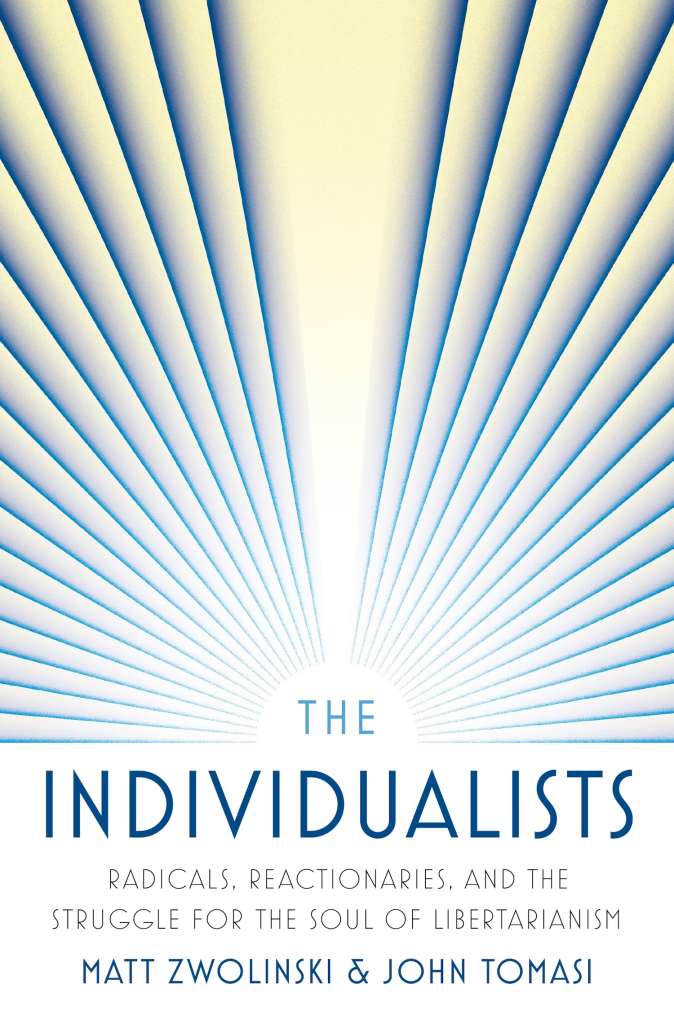
Some religious traditions, most famously, the Church of Jesus Christ of Latter Day Saints, practice the Baptism of the Dead. In this practice, the Church baptizes a living person who is acting as a proxy for a deceased person in order to ensure that that deceased person gains entry into Heaven. Often this practice has met with vigorous objections from leaders of other faiths who find the practice disrespectful to their own faiths.
When libertarians write the history of their ideology in matters of race they tend toward a similar practice. Historical figures are torn from their contexts and declared “libertarians” in order to, metaphorically, get libertarians into the Kingdom of Free Market Heaven. Often the historical figures are a bizarre hodgepodge of folks, usually chosen more for their appealing views on racial justice than on their advocacy of views normally thought of as the centerpieces of libertarian thought such as the non-aggression principle, capitalism, property rights, or strict individualism. The most egregious example of libertarians trying retroactively baptize a historical figure as one of their own is when they try to claim that Martin Luther King, Jr., noted socialist, was a libertarian (examples: here, here, and here).
In their new book The Individualists: Radicals, Reactionaries, and the Struggle for the Soul of Libertarianism, Matt Zwolinski and John Tomasi know better than to try to retroactively enroll MLK as a libertarian, indeed, they point out that many libertarians object to MLK’s ideas (pp. 220, 358). These are real scholars publishing with Princeton University Press, not some blogger on the internet like some people around here. On the other hand, Zwolinski and Tomasi cite a whole lot of bloggers in their chapter on “Racial Justice and Individualism” which is my focus, so perhaps the playing field is more even than I thought.
Zwolinski and Tomasi seem well aware of philosopher Stephen Toulmin’s adage that “Definitions are like belts. The shorter they are, the more elastic they need to be. A short belt reveals nothing about its wearer: by stretching it can be made to fit almost anybody…Yet the hope of hitting on some definition which is at one and the same time satisfactory and brief dies hard” (p. 18). They opt for “satisfactory” rather than “brief” and devote their first chapter to answering the question, “What is Libertarianism?” and draw careful distinctions among “classical liberals,” “neoliberalism,” and “Strict libertarians.” That last category is itself comprised of deontic libertarians, who are guided entirely by inflexible principles and consequentialist libertarians who “evaluates the consequences not of specific policies but of general principles and retains its commitment to those principles even if they (seem to) fail in particular instances” (p. 16). As an aside: keep an eye on that parenthetical “seem to,” it will become important later. Zwolinski & Tomasi often label failures of libertarianism, no matter how big or well documented as seemings. Libertarianism can only “seem” to fail, not actually fail.
Their summary of libertarianism gives us this:
Libertarianism is best understood as a cluster concept. We see libertarianism as a distinctive combination of six key commitments: property rights, negative liberty, individualism, free markets, a skepticism of authority, and a belief in the explanatory and normative significance of spontaneous order. (p. 6)
It is the jockeying among those various elements that make libertarianism so slippery a concept: just which element should be weighted the most, for example? It is also these differing commitments that seem to open the door to reactionary libertarianism. In Zwolinski & Tomasi’s history, libertarianism grew out of an absolute commitment to individualism and negative liberty first embaced by certain 19th century figures’ opposition to slavery. In the twentieth century libertarianism took a reactionary turn in defense of the status quo, and is now embroiled in controversy over which path the “Liberty Movement” will take here in the 21st century: radical or reactionary? (Spoiler alert: they don’t tell you).
I will focus on Chapter 7, “Racial Justice and Individualism” since that is the chapter that is most relevant to my work and expertise. Buckle up and go to page 2.

Libertarians not only prize ‘freedom’, for those they think merit it, over equality, they prize that ‘freedom’ over truth and honesty. As academics, the authors of that work of libertarian apologia, with all the pejorative sense that word usually carries, would have a hard time explaining just why they were so very selective in their choice of evidence. Cherry-picking and wilfull blindness par excellence.
LikeLiked by 1 person
I want to add that that post was not, IMO, too long. Though I will admit that I have more than enough work to do to chase down the links within it. [goes off to put coffee on the brew]
LikeLiked by 1 person
Pingback: F.A. Hayek and the False Promise of a Racially Just Libertarianism | Fardels Bear